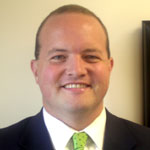Most of the approximately 37,000 aspiring doctors who apply to U.S. medical schools this year will fail to win admission to an MD program. Many of these unsuccessful candidates will be brought low by a handful of errors that admissions specialists see applicants commit year after year. Before applying, it would help to understand how med school applications are evaluated. Many of these mistakes occur in what AdmissionsConsultants’ medical school experts call the three most problematic steps of the application process: recommendations, personal statements, and interviews.
Problem Area 1: Recommendations
Of course, no one deliberately chooses a recommender who will say negative things about them. But many applicants do almost as much harm to themselves by choosing recommenders whose letters do little or nothing to support their medical school candidacy.
Some applicants assume that a letter from a prestigious physician or scholar will make their application stand out. That’s not necessarily the case, says Dr. Greg Goldmakher, who attended the University of Texas Southwestern Medical School. “Many applicants are eager to get letters from famous professors they took classes from. The problem is that classes taught by famous professors almost always have hundreds of students. A Nobel laureate who knows you only through your participation in a large class won’t be able to write anything that truly distinguishes you from all the other applicants who worked hard and got good grades. That’s the case even if you always sat in the front row and got an A in the course.
|
“It’s better to get a letter from someone who has gotten a chance to know you and your personality and to understand what motivates you to pursue a career in medicine. Choose a professor who taught a small seminar course, or a mentor who saw you work in a research or clinical volunteer setting.”
Another common applicant mistake is to select recommenders whose letters will not answer questions about your potential as a medical student.
“My general advice to applicants is that, when choosing recommendation writers, they should remember that this is not a job application,” says Dr. Tim Wu, who served on the SUNY Downstate College of Medicine admissions committee. “The recommenders who can help you get a job are not the same recommenders who can help you get into medical school.
“Often clients ask me if people as far removed from academics as ‘my supervisor at the Gap’ or ‘my church deacon’ or even ‘my grandmother who’s had a lot of medical problems, so she knows what she’d want in a doctor’ can be good letter writers,” Dr. Wu says. “My answer is a big ‘no.’ These are mere character references. A good letter writer, by contrast, will confirm the positive aspects of your med school application and assuage any concerns the admissions committees may have with regard to your candidacy.”
But Dr. Mark Edney cautions that even qualified recommenders are a poor choice if they know you so well that they may not be seen as objective. “Avoid getting recommendations from family friends, even if that includes the Chair of Surgery at the local medical school,” Dr. Edney advises. “The committee member reading the letter will assume bias right off the bat. Even if the recommendation is glowing, it may not carry as much punch as one that does not have the potential for bias.”
| {module AdsenseBlock} |
Dr. Edney, who served on the admissions committee at Dartmouth Medical School, also encourages applicants to think of the combined impact their three recommendation letters will have. “A little diversity is the key to success here,” he says. “If you were a science powerhouse as an undergrad and get your three letters from the chairman of Biology, the chairman of Chemistry and a research advisor, you know those people could all be expected to say, ‘this is the best student we’ve had in years.’ But that’s not your best strategy. It would be much more effective to include a letter from a literature or classics or philosophy professor who might be able to say something like, ‘Sarah brings a refreshing and unique perspective to our philosophical discussions which is not typical of someone who has such academic achievement in the sciences.’ That would show the admissions committee that you’re strong across the board, not just in science.”
About the Author Ann Driscoll writes for AdmissionsConsultants, an organization that provides admissions advice to premeds from physicians who have been on medical school admissions committees. For a 15% discount on their services, use studentdoc.com discount code NUCA.
Topics #admissions consultant #amcas #amcas application #medical school admissions #medical school application

